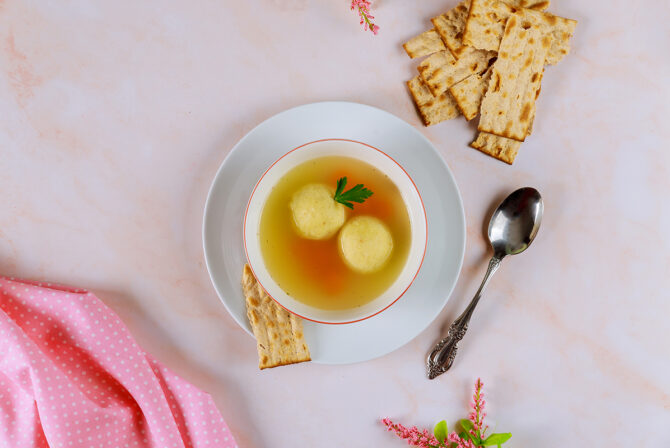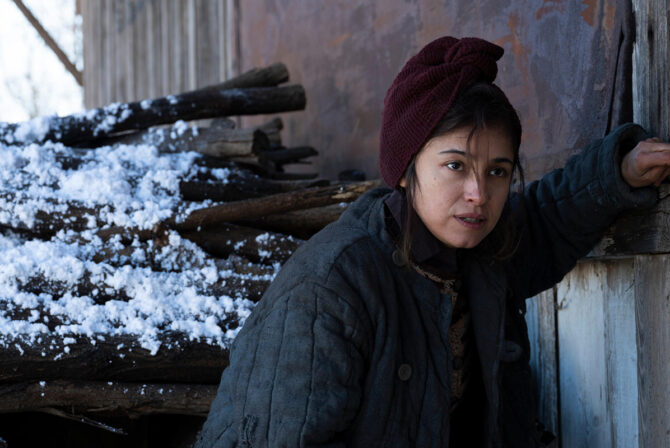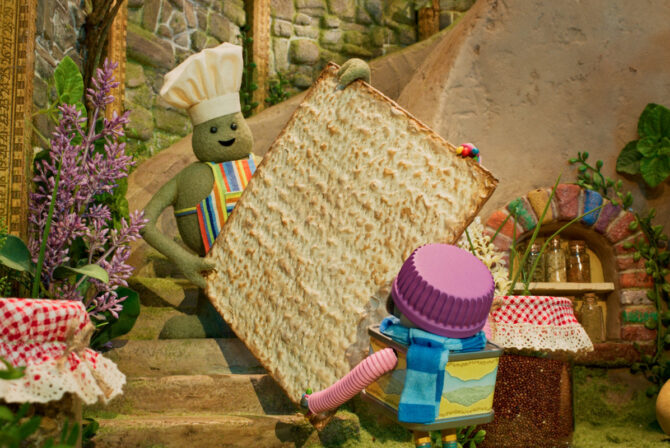
Violet Jones helped care for Renee when she was young. Here she is in 1988 at Renee's daughter's bat mitzvah.
Unlike the time in which I raised my children, it is pretty much impossible for a family today to survive on one income. Child care options are tensely examined, researched and chosen, often with reservations, second thoughts and regret. It is incredibly stressful for you young parents.
The choices seem to boil down to care giving at a day care center or by a nanny. Each option has its advantages and disadvantages. But what I react to, based on what I read and observe, is the sense that the people who are doing the care giving are grossly underpaid, often overworked, and sometimes, most terribly, treated poorly.
Two recent, prominent articles in the
New York Times
discussed Ai-Jen Poo, a woman considered to be the Norma Rae of nannies, who leads a coalition fighting for the fair treatment of domestic workers. The article mentions, “the professional couple bringing in six figures a year…( and) the nanny or maid without whom the couple would not be able to practice their professions.” On average, the article notes, the nanny’s salary is less than $15 per hour with no benefits. Even more troubling is the lack of respect and dignity these workers, who give their hearts to the children for whom they care, often endure.
One family I know pays $12 per hour which seems to be the going rate in the neighborhood. This made the nanny ineligible for Medicaid. The family made the illegal, but, in my opinion, the ethically imperative choice to partly pay the nanny in cash so she could keep her (meager) medical benefits. (We do have to wonder: Can someone really live in New York City on $12 per hour and be expected to pay for private health insurance?)
I have no experience hiring a nanny. I was lucky to have been a happy, full-time stay-at-home mom until I went back to work in a home-based business when my youngest was 5-years-old, and back to my profession in an office when he was 8.
But I grew up in an unusual 1950s/1960s situation: My parents had full-time help. And my mom didn’t work outside the home. Violet came to our household when I, the eldest child, was a year old and left when I went off to college. She worked five days a week for 12 hours a day and until after lunch on Shabbat. She cooked, cleaned and took care of the three kids. She picked us up from the school bus stop, took us to the park, and gave us dinner. I have more memories of being with her than I do of being with my parents. I have so very many good memories.
I learned a lot from Vi and from how my parents treated her and expected us to treat her.
This was before the civil rights era and Vi was a black, religious Roman Catholic from St. Thomas, the Virgin Islands. I was not allowed to call her our “maid”–she was the “person who helped my mother” or the “woman who took care of me.” I was not permitted to have her “clean up after me.” She was treated with all the respect and dignity due a human being, especially one so important as to be taking care of the kids in the family. She knew all about us, but we knew very little about her and, as an adult, I have often wondered who was taking care of her daughter while she was taking care of us.
In a very real sense, Vi was my most important teacher and the moral center of my childhood. I learned tolerance and gained understanding about different races, classes, and religions. I knew about Lent, the Pope, and the changeover from the Latin mass. I saw the Daily Tribune (a tabloid) in her bag and the Times on our table. Vi taught me how to sew a hem to shorten my dresses to mini-skirt length. She taught me how to dance, shmoozed with all my friends, and evaluated my boyfriends. I stayed in touch with Vi until several months before she died (that’s another story.) She was at my, and my siblings’, weddings and at my son’s bar mitzvah (as our guest at a hotel in the Catskills.) I do not underestimate the impact she had on my life and I always tried to let her know how important she was to me.
I believe, inferring from my parents’ values and behavior that she must have been paid fairly for the times. I am quite sure that she was treated better than one would have expected in those days.
The point I want to make is that how we treat our help, the people who work for us, influences our children from the minute they become part of our households. How we speak to our nannies and day care workers, our cleaning ladies and housekeepers, what we say about them, what we expect, is absorbed by those little heads from a very young age. Especially when you share child care responsibility with someone, when you entrust your most precious child to someone, that someone deserves the utmost respect, dignity, gratitude, and appreciation. And a fair wage.
Our children’s caregivers are essential to their well-being and to the smooth functioning of our households.
They should be our heroines.
In grateful memory of Violet Jones 1923-2001
We all have opinions about who should raise our children. Read here for one mom’s search for Mary Poppins and go here for a dad’s take on why nannies are for people who shouldn’t have kids.







